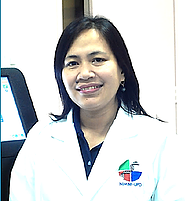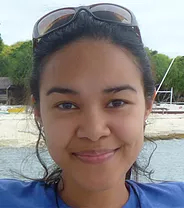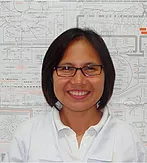DATE:
03 March 2017 | 8am – 4pm
VENUE:
DOST-PCAARRD Innovation and Technology Center (DPITC),
PCAARRD Complex, Los Baños, Laguna (click here for map)
Speakers
Lerma San Jose-Maldia, PhD
Assistant Professor,
College of Forestry and Natural Resources
University of the Philippines Los Baños
Hayde Galvez, PhD
Project Leader,
Agriculture, Livestock & Fisheries Program
Philippine Genome Center
Francis Tablizo
Information and Operations Officer,
Core Facility for Bioinformatics
Philippine Genomics Center

Shiela Mae Araiza
Laboratory Technician I,
Sequencing Core Facility
Philippine Genome Center
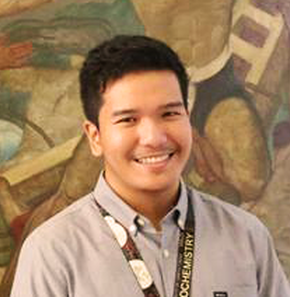
Kevin Cruzado
Science Research Specialist I,
Sequencing Core Facility
Philippine Genome Center

Kris Punayan
Laboratory Technician I,
Sequencing Core Facility
Philippine Genome Center
Program
8:00-8:45am REGISTRATION
8:45-9:00am Welcome Remarks
Melvin Carlos, PhD, Director, Technology Transfer and Promotion Division, PCAARRD
9:00-9:15am Introduction
Ma. Anita Bautista, PhD, PGC DNA Sequencing Core Facility
9:15-9:45am Basic Molecular Biology Concepts and Tools
Mr. Kevin Cruzado, Science Research Specialist I, PGC-DS-BF
Ms. Sarah Penir, Research Associate, PCARI/SGCL
9:45-10:15am Principles of Capillary Sequencing
Ms. Shiela Mae Araiza, Laboratory Technician I, PGC-DS-BF
10:15-10:45am BREAK
10:45-11:15am Introduction to Next-Generation Sequencing
Benedict Maralit, PhD, Laboratory Manager, PGC-DS-BF
11:15-11:45am Services at PGC-DSCF and SGCL
Ms. Kris Punayan, Laboratory Technician I, PGC-DSCF
Ms. Sarah Penir, Research Associate, PCARI/SGCL
11:45-12:00pm Questions and Discussion
12:00-1:00pm LUNCH BREAK
1:00-1:30pm Biodiversity and Genomics for the Philippine Setting
Ian Fontanilla, PhD, Program Director, PGC-Biodiversity
1:30-2:00pm Genomics-Assisted Molecular Breeding for Climate Resilient and Novel Plant Varieties
Hayde Galvez, PhD, Project Leader, PGC-Agriculture, Livestock & Fisheries Program
2:00-2:30pm Genomics in Forestry
Lerma Maldia, PhD, Assistant Professor, UPLB Forestry
2:30-2:45pm Break
2:45-3:15pm Diving into the Genomes of Marine Organisms
Cecilia Conaco, PhD, Associate Professor, Marine Science Institute (MSI),
UP Diliman & Deputy Director of the Bolinao Marine Laboratory (UP-BML)
3:15-3:45pm A Brief Overview of Bioinformatics Analyses and Applications
Jan Michael Yap, PhD, Director, PGC-Computational Genomics and Systems Biology
Bioinformatics Services at PGC
Mr. Francis Tablizo, Information and Operations Officer, PGC-Bioinformatics
3:45-4:00pm Questions and Discussion
4:00-4:15pm Closing Remarks
Ma. Anita Bautista, PhD, Director, PGC DNA Sequencing Core Facility
Event Summary by Alessandra C. Sanchez
6 March 2017
The Philippine Genome Center (PGC) conducted an introductory molecular biology workshop at the DOST-PCAARRD Innovation and Technology Center (DITC) in Los Baños, Laguna on March 3, 2017. The workshop, attended by PCAARRD’s industry strategic plan managers and monitors, aimed to discuss significant molecular biology concepts and to promote the services provided by PGC DNA Sequencing and Bioinformatics Facility (DS-BF) and the Philippine-California Advanced Research Institutes – Shared Genomics Core Laboratory (PCARI-SGCL), and to expound upon the applications of genomics in agriculture, forestry, marine science and biodiversity.
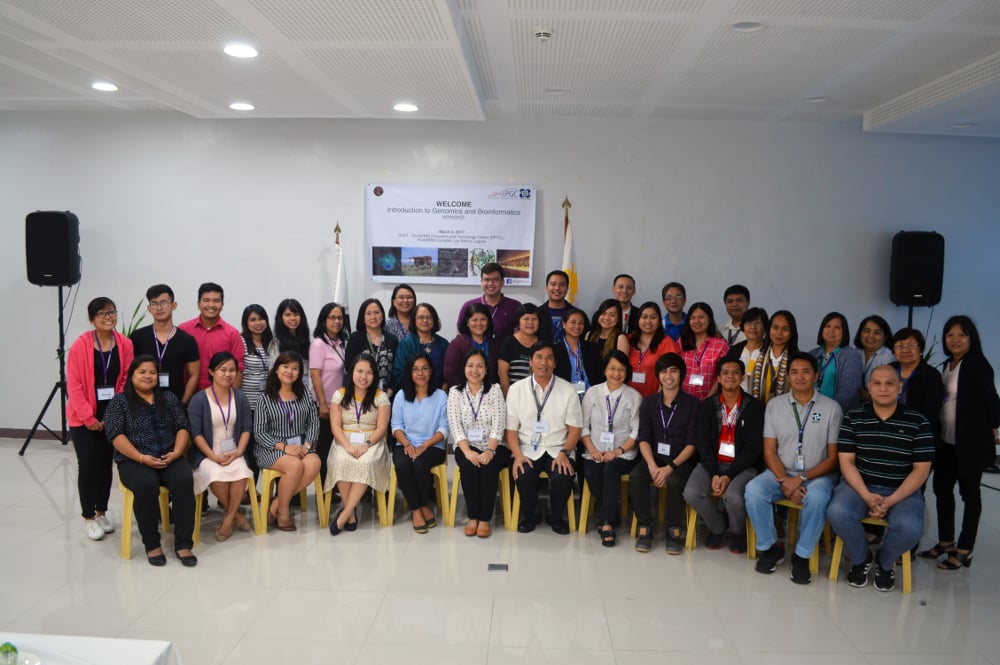
The PGC DS-BF and PCARI-SGCL staff held lectures on introductory molecular biology, capillary sequencing, next generation sequencing, and laboratory and bioinformatics services and their applications. Featured speakers then gave lectures on the applications of genomics in their fields.
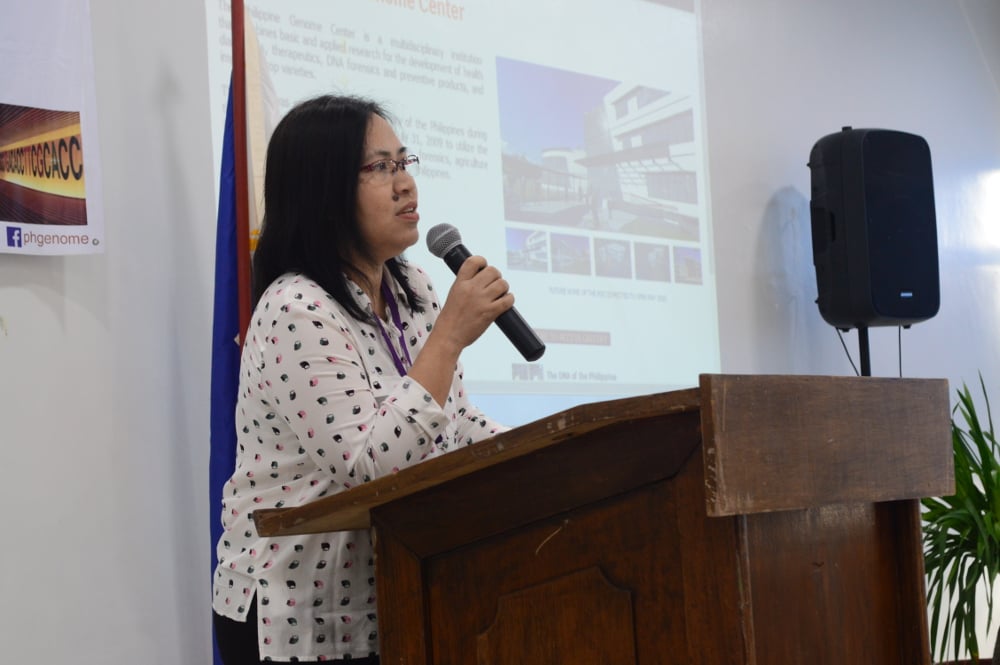
Dr. Ma. Anita Bautista, Director of the PGC DS-BF, said in her introductory remarks that, “through the Philippine Genome Center, the problems that we have in agriculture, in health, in the environment, [and] in energy would be understood more completely, and would also be solved effectively if we are going to apply advanced molecular biology, biotechnology, and genomics.”
In light of the possible applications of molecular biology in a range of fields, she added that “we would like to fill in the talent gap in genomics and bioinformatics.”
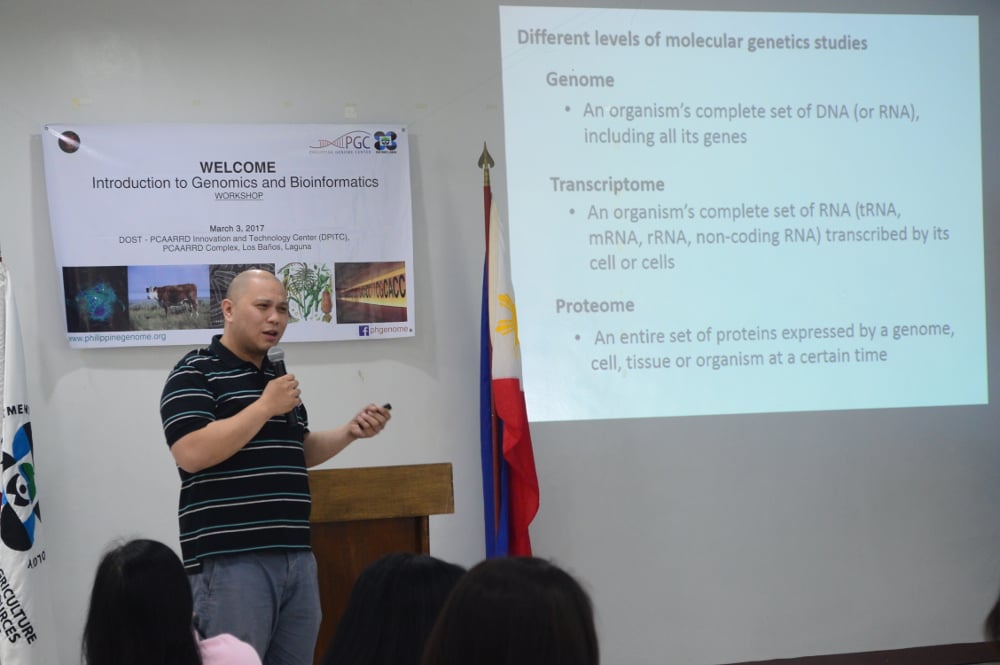
Dr. Ian Kendrich Fontanilla, Program Director for PGC’s Biodiversity Program, presented possible projects that can be held in consideration of the Philippine’s abundant and unique ecological landscape. “Every species contains unique genes that may code for useful proteins that could be tapped as medicine, food, industrial materials, and other products,” he said. Because of the potential applications of biological organisms’ genomes in not only maintaining ecological balance, but also in health, industry, and various other fields, he noted that it was “therefore important to know what organisms are out there, which [ones] need conservation efforts, [which ones are] endangered because of our own activities, and obtain their genetic data before they are lost.”
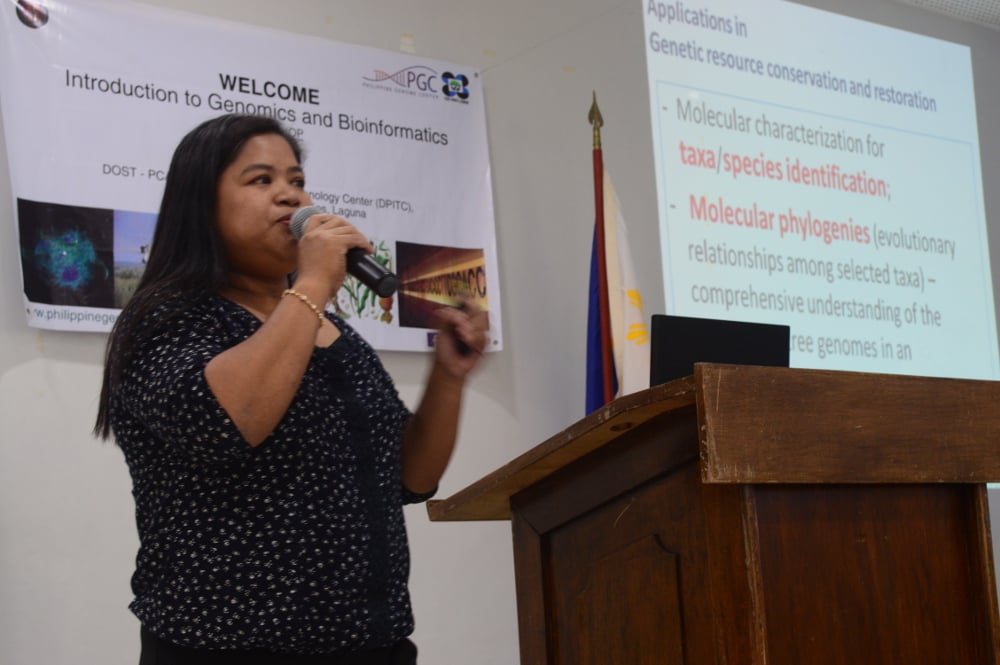
Dr. Lerma Maldia, Assistant Professor at the College of Forestry and Natural Resources at the University of the Philippines Los Baños, expounded upon the “limitless” role of genomics in the “conservation, sustainable utilization, and management” of forest resources. Genomics may be used in taxonomic identification of forest species, she noted in her short lecture, and genetic information may be used to determine the variation in geographical distribution of certain taxa for reforestation policies, or to study the effects of climate change on forest behavior.
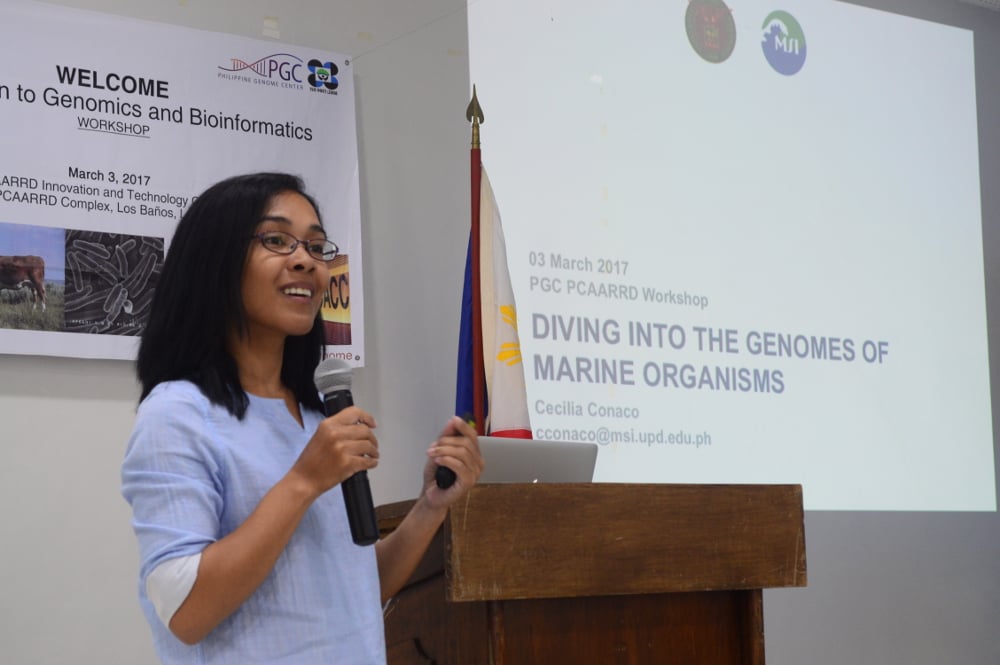
Likewise, Dr. Cecilia Conaco, Associate Professor at the Marine Science Institute (MSI) and Deputy Director of the Bolinao Marine Laboratory (BML), University of the Philippines Diliman, delivered a lecture on the potential applications of genomics in marine research, particularly in conservation efforts, biodiversity assessment, and the possible discovery of novel natural products that may be of use. “Areas that have [high] biodiversity, such as here in the Philippines,” she said, “really need to be hotspots of basic research because we have everything in our backyard, and there’s just so much for us to play with.”
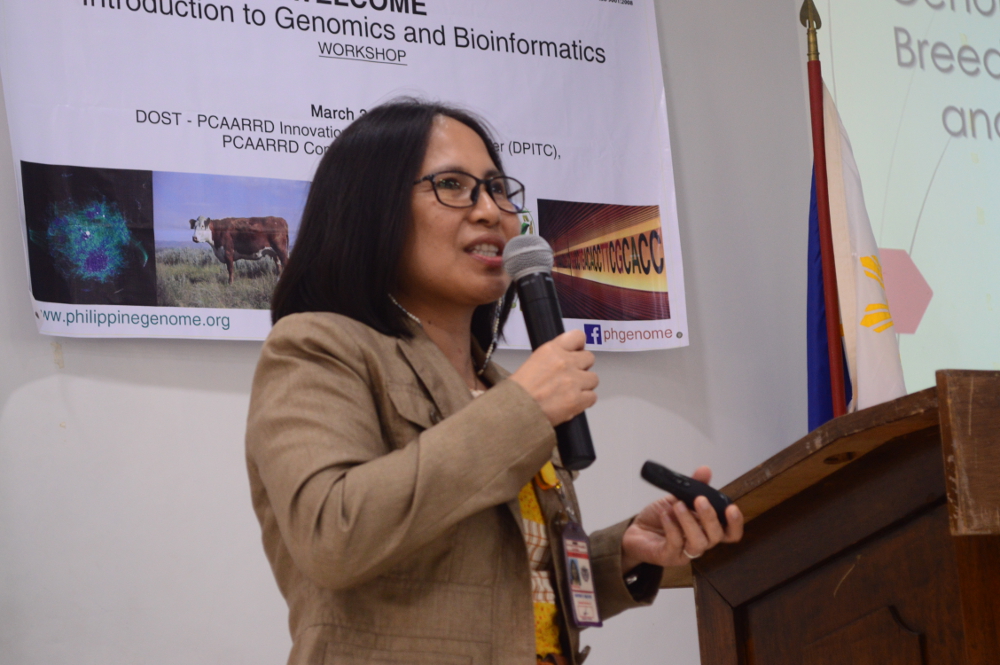
Dr. Hayde Galvez, Project Leader at the PGC Agriculture, Livestock, Fisheries and Forestry Program, discussed the use of genomics and gene manipulation to enhance plant phenotypes that may help in their adaptation to unfavorable conditions in the field and to improve the nutritional values of plant varieties.

